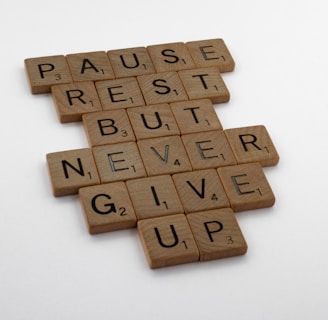Mastering the Mind: Utilising a Psychological Stop Loss in Trading


Trading in the financial markets is often depicted as a battle of strategies, numbers, and market conditions. However, one crucial element often overlooked is the human mind behind the trades. Emotions, cognitive biases, and external factors can significantly impact your trading performance. Recognising when your mental state is not conducive to effective trading is paramount for your success. In this blog post, we'll delve into the concept of a psychological stop loss – understanding when to step back from trading due to mental distractions or something else.
Understanding a Psychological Stop-Loss
Traditionally, stop-loss orders are used to limit losses on trades based on predetermined price levels. A psychological stop loss, on the other hand, involves recognising when our mental state is compromised and voluntarily stepping away from trading to avoid making irrational decisions (but we know it's not easy to stop trading). It's about safeguarding our capital by protecting it from the potential harm caused by impaired judgment.
The Importance of Mental Fitness in Trading
Trading is not just about analysing charts and executing trades; it's equally about managing emotions and maintaining mental clarity. Here's why mastering the mind is essential in your trading:
Emotions can cloud judgment: Fear, greed, and anxiety can lead to impulsive decisions, deviating from your trading strategy.
Cognitive biases distort perception: Biases like confirmation bias or loss aversion can influence how we interpret market information, leading to low-quality trades.
External stressors impact focus: Events in our personal lives, such as relationship issues or health concerns, can divert our attention from trading, affecting our performance.
Overtrading due to boredom or excitement: When feeling restless or overly enthusiastic, traders may engage in excessive trading, leading to losses and large drawdowns.
Burnout affects decision-making: Continuous trading without adequate breaks can lead to burnout, diminishing cognitive abilities and decision-making skills.
Lack of sleep impairs judgment: Sleep deprivation can impair cognitive function, increasing the likelihood of making trading errors.
Financial worries create pressure: Personal financial stress can amplify our emotions and impair rational decision-making in trading.
Illness affects focus and energy levels: Physical ailments can drain energy and reduce focus, making it challenging to make informed trading decisions.
Life events demand attention: Major life events like moving home, relationship changes, or family emergencies require focus outside of trading, making it difficult to devote attention to the markets.
Mental health struggles impact performance: Conditions like anxiety or depression can make emotional volatility worse and make it more difficult to make trading decisions.
Recognising When to Implement a Psychological Stop Loss
Now, let's explore specific scenarios where implementing a psychological stop loss is better than not:
Illness: When you're unwell, whether it's a common cold or a more serious condition, your focus should be on recovery, not trading.
Emotional Turmoil: If you're experiencing intense emotions like grief, anger, or overwhelming stress, it's advisable to take a break from trading until you regain emotional stability.
Sleep Deprivation: Chronic lack of sleep can impair cognitive function and increase the likelihood of making costly trading mistakes. Prioritise rest and recuperation.
Financial Strain: If you're grappling with financial worries unrelated to trading, it's best to address those concerns before resuming trading activities to prevent emotional biases from clouding judgment.
Major Life Changes: Events like moving homes, getting married, or becoming a parent require significant attention and can disrupt trading routines. Press pause until you've adjusted to the changes.
Relationship Issues: Relationship conflicts or breakups can be emotionally draining and distracting. Focus on resolving personal matters before diving back into trading.
Mental Health Challenges: Seek professional support if you're struggling with mental health issues like anxiety or depression, and refrain from trading until you're in a better mental state.
Work Stress: If your day job, business, or other responsibilities are overwhelming, trading may add unnecessary pressure. Wait until you have the bandwidth to commit fully to trading.
Legal Matters: Legal issues demand time and attention, making it difficult to focus on trading. Prioritise resolving legal matters before returning to the markets.
Natural Disasters or Emergencies: During crises like natural disasters or emergencies, your priority should be ensuring safety and security, not trading.
Final Points
In the fast-paced world of trading, mastering the mind is just as crucial as mastering market analysis. Implementing a psychological stop loss involves recognising when mental distractions or distress impair trading performance and having the discipline to step away until mental clarity is restored. By prioritising mental fitness and knowing when not to trade, traders can safeguard their capital and enhance their long-term success in the markets. Remember, in trading, the mind is your most powerful asset – nurture it wisely.
Until next time, stay happy and keep getting money wiser.

